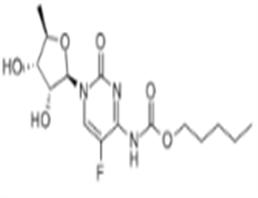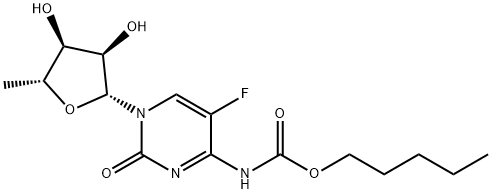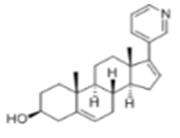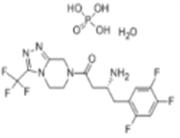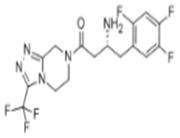| Indications and Uses |
Capecitabine is a new form of oral fluorinated pyrimidine drug. Capecitabine was developed by Roche Pharmaceuticals, and its commercial name is Xeloda. Capecitabine can change in vivo into 5- FU, an anti-metabolizim fluorine pyrimidine deoxynucleoside carbamate drug that targets cancer cells to inhibit cell division and disrupt RNA and protein synthesis. Its effects are significantly tied to the level of TP enzyme expression in neoplastic tissue and to DPD enzyme in vivo expression. It is suitable as further treatment for advanced primary or metastatic breast cancer patients who have not responded to paclitaxel or anthracycline antibiotics. As an anticancer drug, it is mostly used to treat advanced primary or metastatic breast cancer, as well as in treatment for non-small cell lung cancer, pancreatic cancer, bladder cancer, rectal cancer, colon cancer, gastric cancer, and other solid tumors. Many drugs such as taxanes (paclitaxel, docetaxel, mitomycin, cisplatin, etc.) can increase TP enzyme expression in neoplastic tissues and also have curative effects on gastric cancer. When used in combination with Capecitabine, these drugs can also improve Capecitabine’s anticancer abilities and produce synergistic effects. |
| Clinical trials |
Analyses of nearly 400 randomized comparisons of clinical outcomes show that a combination of adriamycin, cisplatin or oxaliplatin with 5-FU, compared to a combination of these drugs with Capecitabine, has a two-fold difference in curative efficacy and lowers toxicty. A large-scale Chinese clinical trial of Capecitabine in combination with DDP in the treatment of stage II gastric cancer also proves its advantages of high efficacy, low toxicity, and affordability. |
| Drug interactions |
Currently, there are no side effects of clinical significance when used in combination with antihistamines, NSAIDs, morphine, paracetamol, aspirin, antiemetic drugs, and H2 receptor antagonist drugs.
Capecitabine’s binding rate with serum protein is relatively low (64%), and its possibility of interacting through substitution with drugs that bind closely with proteins is currently unknown. In external experiments, Capecitabine has not shown any influence on human liver microsomal P450 enzyme.
If any phenytoin and coumarin derivatives anticoagulants are used in combination with Capecitabine, dosages should be lowered. |
| Adverse effects |
Common adverse reactions include nausea, vomiting, oral ulcers, abdominal pain, diarrhea, loss of appetite, and skin changes. There have also been reports of some patients experiencing transient myelosuppression, hair loss, tears, headache, and dizziness. |
| Warnings and precautions |
Capecitabine is a bone marrow inhibitor; a blood exam must be administered before every usage to monitor blood cell and platelet count.
This product poses toxic side effects to the liver, so liver functions must be routinely examined. Additionally, heart functions should also be monitored to prevent irreversible toxic reactions. If venous transfusion of the drug is required, the aforementioned organ functions should be tested for suitability before administration. Capecitabine may cause damage to embryos, thus making it unsuitable for pregnant women. Women using this drug are also not suitable for pregnancy. Even after treatment is ended, this drug may have some impact on fertility. |
| Chemical Properties |
Colourless solid |
| Uses |
An antineoplastic agent. A prodrug of doxifluridine. |
| Uses |
Capecitabine is an antineoplastic agent. Capecitabine is a prodrug of Doxifluridine (D556750). |
| Uses |
An antiproliferative 5-fluorouracil releasing compound |
| Definition |
ChEBI: A carbamate ester that is cytidine in which the hydrogen at position 5 is replaced by fluorine and in which the amino group attached to position 4 is converted to its N-(penyloxy)carbonyl derivative. Capecitabine is a antineoplastic agen used in the treatment of cancers. |

 China
China



